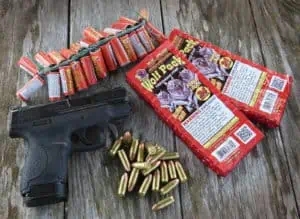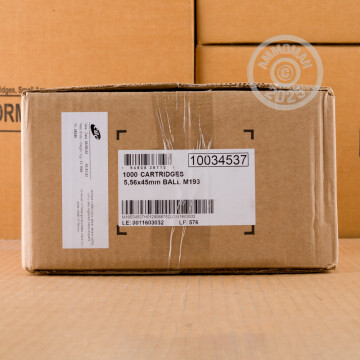Can You Tell The Difference Between Gunshots And Fireworks?
Every year around the 4th of July, law enforcement agencies around the country are inundated with phone calls from people concerned about random gunfire in their neighborhoods. Unfortunately, there are irresponsible gun owners out there who decide that shooting their guns into the air in celebration is a good idea.
“We do experience an uptick in reports of gunfire or fireworks around the Fourth of July. Every year we ask the community not to fire celebratory gunshots into the air. This is a dangerous practice that could hurt or kill someone,” said Karie Partington, Media Relations Bureau Manager for the Collier County, Florida Sheriff’s Office.
Responsible gun owners know that shooting guns into the air is not a good idea. In fact, it’s a really, really dumb idea. When a bullet goes up into the air, it will eventually come down. When it comes down, it’s going to hit something. Sometimes, that something is a person, and tragedy ensues. So, if you’re thinking about shooting your guns into the air on the 4th of July, don’t.
Law enforcement officers responding to reports of gunfire that turn out to be nothing more than the use of celebratory fireworks takes time and resources away from the other important duties law enforcement provides for us. Because it is often hard to tell the difference been the sound of gunfire and that of fireworks, we headed to the shooting range with some firecrackers and a firearm to see if there is a way to tell the difference between the two just by how they sound.
Is It Gunshots, Or Is It Fireworks?
 The gun we chose to test with is a very common pistol: a Smith and Wesson M&P Shield in 9mm. The fireworks we tested are a commonly-available string of firecrackers. We tested to see if we could tell the difference between them by sound alone.
The gun we chose to test with is a very common pistol: a Smith and Wesson M&P Shield in 9mm. The fireworks we tested are a commonly-available string of firecrackers. We tested to see if we could tell the difference between them by sound alone.
Purpose of Test:
To determine the difference in sound between a string of firecrackers and a 9mm pistol.
Testing Procedure:
We recorded the sound of both the pistol and the firecrackers at close (2 yards) and long (200+ yards) distances.
Testing Equipment:
A 9mm Smith & Wesson Shield
Two strings of Phantom Fireworks “Wolf Pack” firecrackers
115 grain American Eagle 9mm Ammunition
A Nikon D7500 video camera
An iPhone 7+ Camera
Test Results:
As you can hear, it is very difficult to discern the difference between the gunshots and the fireworks just by listening to their individual sounds. However, there are three noticeable differences between them:
- There is a rhythm to the gunshots that is not there with the firecrackers. When a pistol fires, the pistol needs to cycle the action and reload another round, and the recoil of the pistol discharging forces the muzzle to rise. The time needed to complete these mechanical actions is identical for each shot. As a result, the gunshots happen at regular intervals. This is not true of the firecrackers. They ignite at random intervals, some of which are almost simultaneous and occur faster than gunshots do.
- The video from 230 yards away shows that the sound of a 9mm gunshot is much louder than a firecracker igniting.
- Because firecrackers use black powder and not modern smokeless gunpowder, there is a significant amount of smoke associated with their discharge. This means that if a person hears a “pop pop pop” sound and there is no smoke appearing, chances are it’s random gunfire and not fireworks.
In addition, there is a secondary “crack” of the bullet from the 9mm pistol that is noticeable under certain conditions. This is a noise that the firecracker does not produce.
We hope this demonstration will help you determine if it’s just fireworks you are hearing on the Fourth of July, or whether it is dangerous gunfire instead. Please be safe with your fireworks on this holiday. If it really is gunfire you are hearing, please immediately contact law enforcement and make a report.



Just picking nits but the pyrotechnic composition in firecrackers is flash powder, not black powder. It’s normally made with aluminum powder and an oxidizer and is much faster burning than black powder